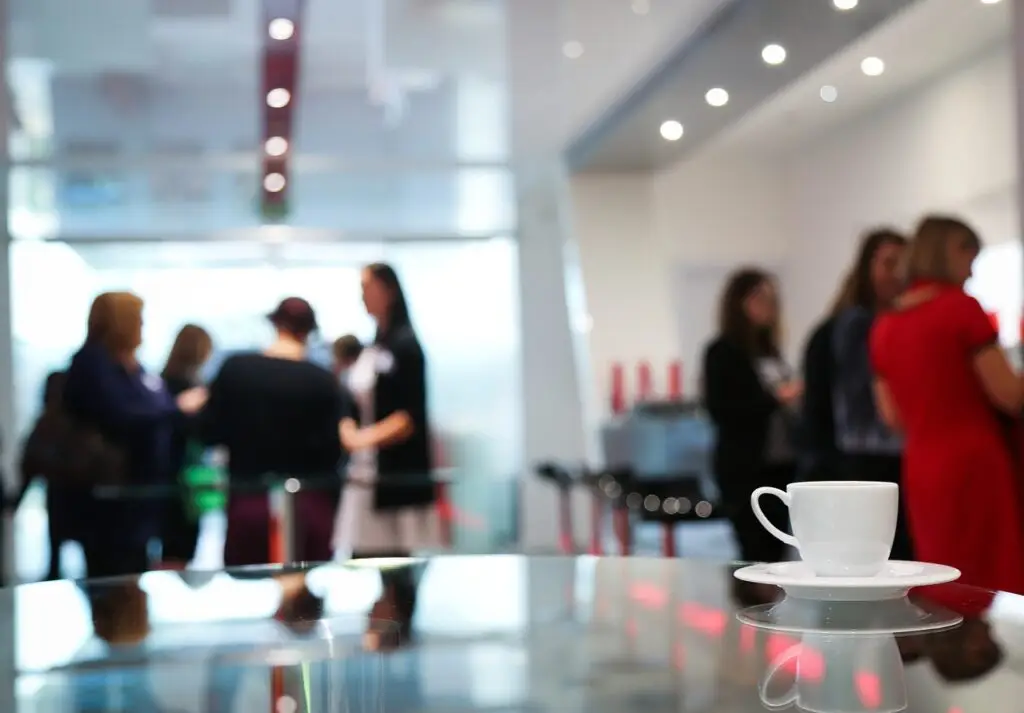Academic conferences may be a great place to network, but with the high volume of guests and tight time schedules, it can actually be tricky to find time with the right people! To maximise your potential to network, follow the five steps outlined in this article.
1. Identify relevant people BEFORE the conference
Browse through the conference programme in advance of the conference. Find out all you can about keynote speakers, the range of presentations and posters, and any other relevant information you are searching for. Then identify the people among this list who you would like to network with, and establish a meaningful rationale for this proposed interaction.
Once this has been finalised, send a personalised message to each of your shortlisted names. Introduce yourself, confirm that you will be attending the conference, and state your intention to network during the conference where possible. Be concise with your message, remain courteous, and avoid coming across as pushy or desperate.
Below is an example message:
Dear Professor Phillips,
My name is Chris Thompson, and I am a PhD student at Saarland University, where I am investigating Mental Fatigue in Football. I have read a lot of your publications on fatigue in team sports, and they have been a great aid to writing my PhD proposal.
I see you are also attending the ECSS Conference in July. If there is an opportunity to have 15 minutes of your time during the week, it would be really useful to ask you a quick couple of questions based on applying fatigue research into practice. I am free on each day, and will be attending the social events as advertised for the evening time slots.
I look forward to hearing from you soon.
Kind regards,
Chris
2. Attend sessions involving your identified contacts
When networking at a conference, a mutual connection and benefit is what you should be aiming for. Approaching someone with little regard for their work and achievements and bombarding them with generic questions solely for your own benefit does not lead to a lasting relationship, and should be avoided at all costs!
Make a note of the key sessions to attend at the conference. You do not need to sit at the front nodding and smiling at every point raised in a presentation, but at least be visible in the room, and consider asking a question at the end. The question is a great way to introduce yourself and break the ice, and you can seek to continue the conversation outside of the session. Here is a way of doing it:
“Hi Professor Phillips. Thank you for your presentation – it was very insightful. My name is Chris, and I emailed you recently regarding fatigue in team sports. I just had one question. What are the challenges of applying your research findings to practical settings?”
3. Do NOT linger!
Once you see your prospective connection at a conference, it can be tempting to instantly go over and beat the impending flock of other PhD students who also want to chat to your targeted contact.
Play it cool and be aware of your surroundings. Do not desperately follow people to the buffet (or the bathroom!), and avoid approaching people who are in the middle of a conversation with others. Also resist the urge to queue and wait your turn to speak – it can feel awkward and come across as desperate.
Wait for a more natural time to speak. You may pass each other in a corridor, or sit close to them in another session. Take your time, too; don’t feel you have to run after people as soon as they have completed their presentation! Conferences typically span over a few days, so you have time to make your move.
“Hi Professor Phillips, my name is Chris. It’s nice to meet you, and thank you for your presentation yesterday morning. Would you have time before the end of the conference to chat further about your research in fatigue? I won’t take up too much of your time!”
4. Attend the evening social events
From experience, the evenings were the best time to network at conferences. People have their guard down over a meal or a couple of glasses of wine, and this can make for a more relaxed and open conversation. I’ve made many a research connection over a pint of Guinness!
Naturally there must be a balance in how you approach this. I have seen people stay in their hotel every evening and watch the networking ship sail right past them, but then other people feel a need to attend every social event and do all they can to sit right next to their desired contact and ask a million thought-provoking questions whilst the wider group is just trying to have a relaxing night.
You don’t need to try too hard at the social events. Sit close enough to the action and you will naturally find yourself becoming involved in the conversations you are seeking. Good networking consists of a professional connection, but also a personal connection. Show your personality just as much as your academic background, and remember to listen more than you talk. You want to be remembered for being a nice person, not just someone who is curious about academic progression.
5. Continue to network after the conference
I have seen many people build up some great connections, but then never really utilise them afterwards. Strike whilst the iron is hot and send a follow-up message within a couple of weeks of the last interaction. If you leave it too long, it can feel awkward to reach out, or the momentum has passed.
Remember to also have some substance behind your next interaction. A quick “Nice to meet you” doesn’t really add anything to the connection, so be sure to add something which can lead to mutually-beneficial endeavours.
Dear Professor Phillips,
Thank you for your time at ECSS last week. I appreciated hearing the insights into your research, as well as your advice for my own academic progression. I also owe you a Guinness the next time I see you!
Following our discussion and your recommendations, I would love to explore the possibility of collaborating with your research team on future projects. If you have time over the next couple of weeks to chat on Teams, I’d be keen to discuss this further.
Looking forward to catching up soon.
Kind regards,
Chris
Final Thoughts
Academic conferences are often full of people with similar intentions to you (i.e. to network with the big names in the room), so you need to be organised and measured before the conference even begins. Remember the importance of manners and personal space, and pick your moments accordingly. You have plenty of time to prove your academic acumen, but your personality can be judged quickly, so be yourself and find ways to be remembered as a good person. It means a lot more than being a PhD student!






